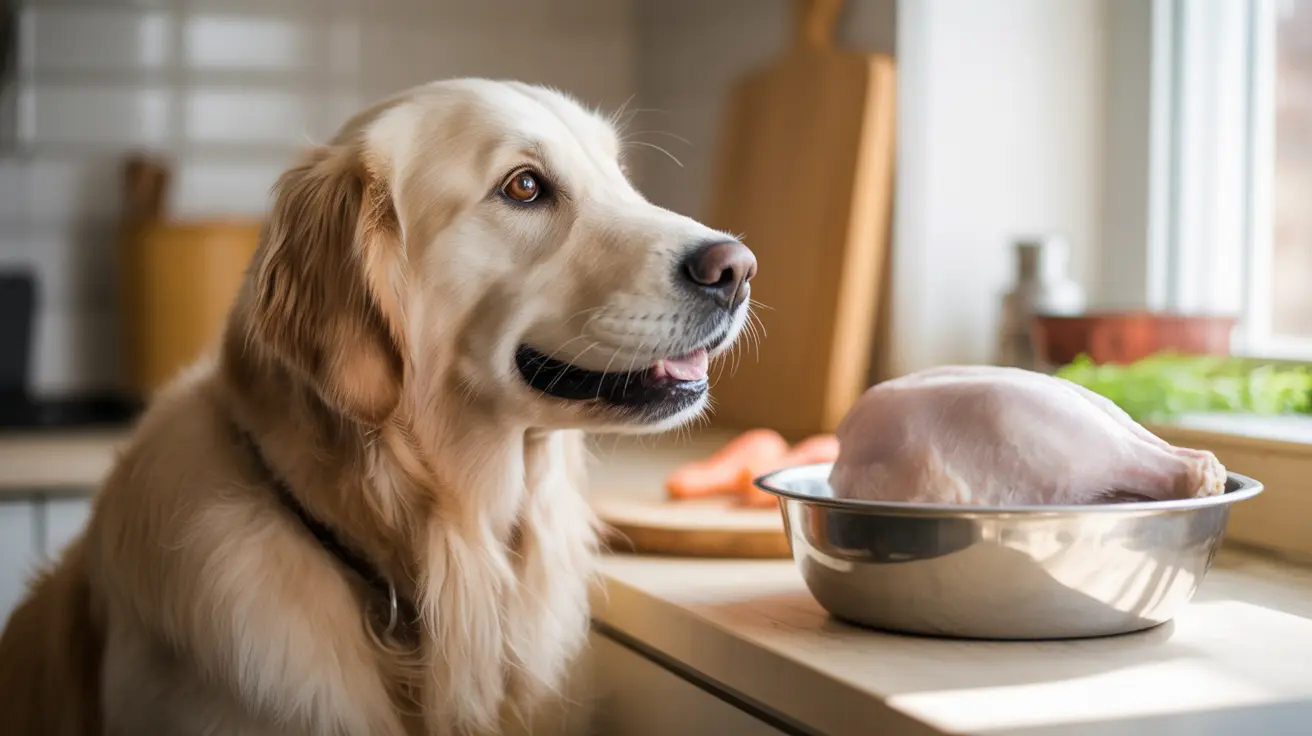As pet owners increasingly focus on providing healthy, natural foods for their dogs, the question "is turkey good for dogs?" frequently comes up. The answer isn't a simple yes or no – while turkey can be a nutritious protein source for our canine companions, how you prepare and serve it makes all the difference between a healthy treat and a potential health hazard.
Let's explore the benefits and risks of feeding turkey to dogs, along with essential guidelines for safe preparation and serving.
The Benefits of Turkey for Dogs
When prepared properly, turkey can be an excellent protein source for dogs. The lean meat is rich in essential nutrients including:
- High-quality protein for muscle maintenance
- Phosphorous for strong bones and teeth
- Riboflavin (Vitamin B2) for energy metabolism
- Essential amino acids for overall health
White meat turkey, in particular, is a lean protein option that can be especially beneficial for dogs who need to maintain a healthy weight or those with certain protein sensitivities.
Safe Ways to Feed Turkey to Your Dog
To ensure your dog can safely enjoy turkey, follow these essential preparation guidelines:
Proper Preparation Methods
- Remove all skin and visible fat
- Cook thoroughly without seasonings or oils
- Use only plain, white meat when possible
- Cut into appropriate-sized pieces for your dog
- Serve at room temperature
Portion Control Guidelines
Even healthy foods need proper portioning. For turkey:
- Small dogs (under 20 lbs): 1-2 small pieces
- Medium dogs (20-50 lbs): 2-3 medium pieces
- Large dogs (over 50 lbs): 3-4 medium pieces
When Turkey Becomes Dangerous for Dogs
Several common turkey preparation methods and ingredients can pose serious risks to your dog's health:
Harmful Preparations
- Seasoned turkey with garlic, onions, or spices
- Deep-fried turkey with excessive oils
- Turkey skin and fatty portions
- Any preparation involving bones
- Processed turkey products with preservatives
Signs of Turkey-Related Problems
Watch for these symptoms after feeding turkey:
- Vomiting or diarrhea
- Lethargy
- Loss of appetite
- Abdominal pain or bloating
- Unusual behavior
Frequently Asked Questions
Is it safe for my dog to eat turkey, and how should I prepare it?
Yes, turkey is safe for dogs when prepared properly. Use plain, cooked white meat with no seasonings, remove all skin and bones, and serve in moderate portions appropriate for your dog's size.
Can dogs eat turkey bones, and what are the potential risks?
No, dogs should never eat turkey bones. Cooked bones can splinter and cause serious injuries including choking, internal punctures, and intestinal blockages.
How can I incorporate turkey into my dog's diet without causing health issues?
Start with small amounts of plain, cooked turkey meat as an occasional treat or meal topper. Always consult your veterinarian before making significant changes to your dog's diet.
Why is turkey skin bad for dogs, and how can it affect their health?
Turkey skin is high in fat and can cause digestive issues, pancreatitis, and obesity. It may also contain seasonings that are toxic to dogs.
Can ground turkey be used as a substitute in homemade dog food recipes?
Yes, plain ground turkey can be used in homemade dog food when thoroughly cooked and prepared without seasonings. However, always consult with a veterinary nutritionist for proper recipe formulation.
Remember, while turkey can be a healthy addition to your dog's diet, it should be given in moderation and prepared specifically with your pet's safety in mind. When in doubt, always consult with your veterinarian about proper portions and preparation methods for your specific dog.






